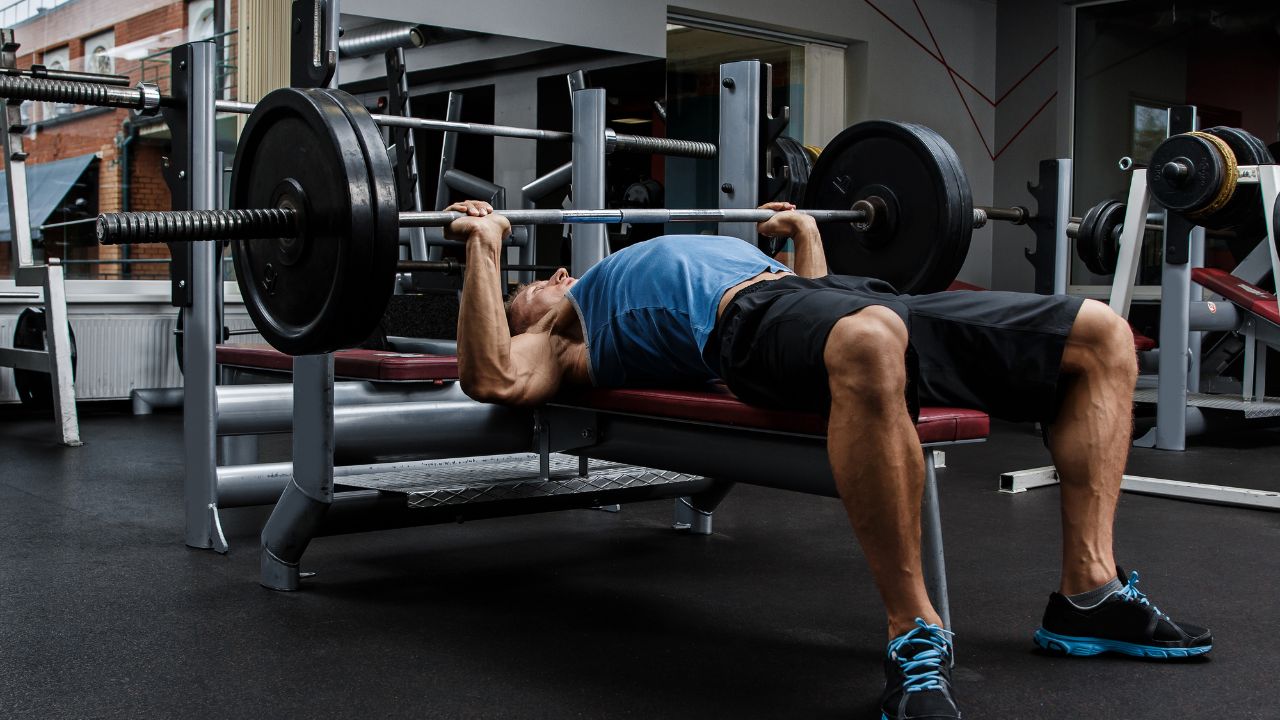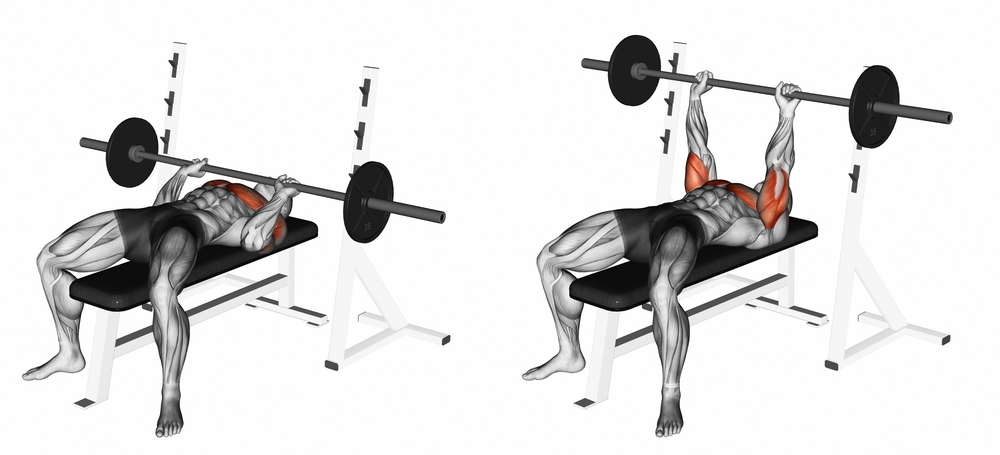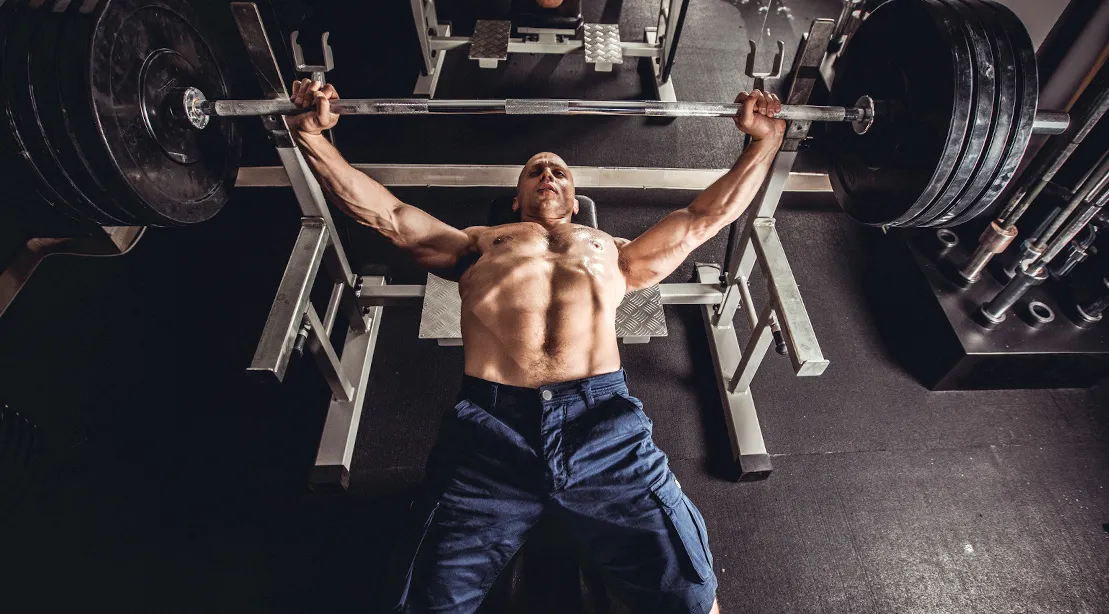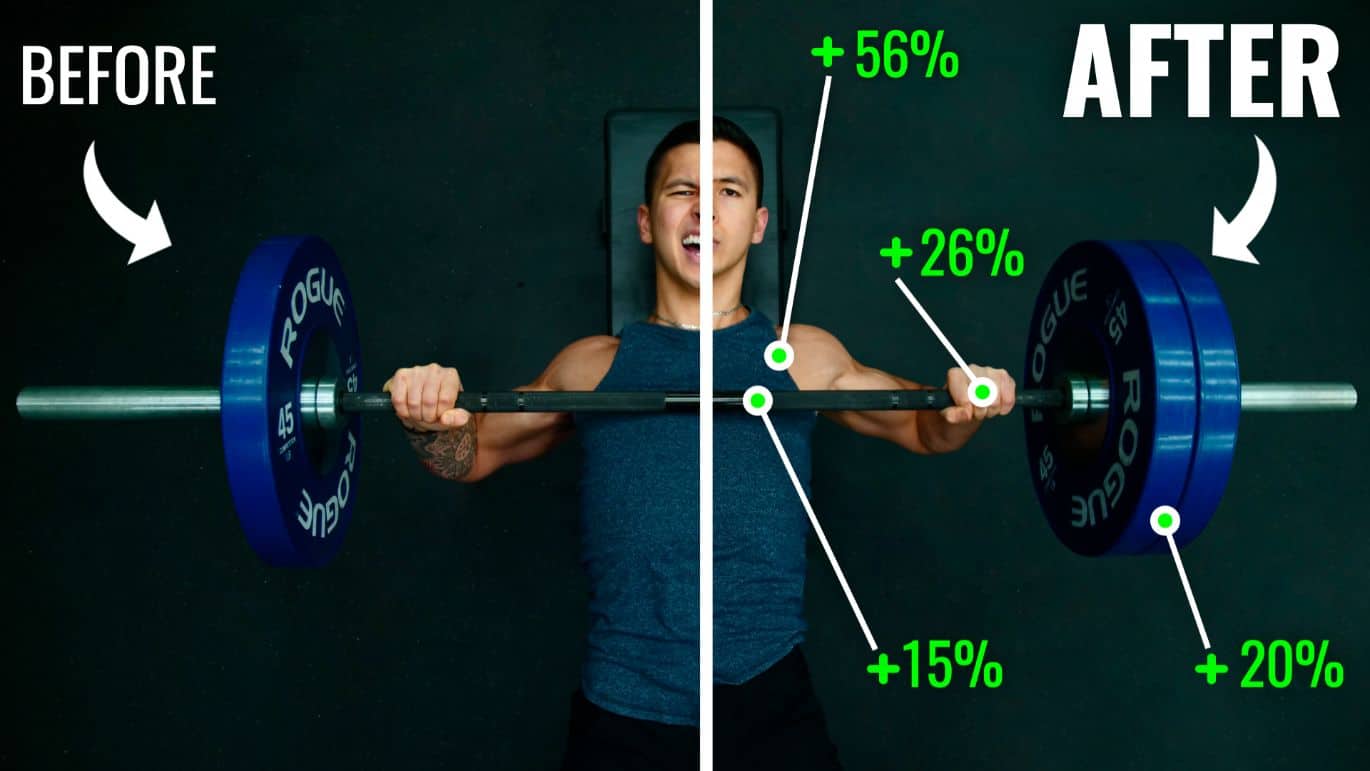The bench press is among the most effective exercises that greatly help ton the upper body muscles. Whether you are a powerlifter or a bodybuilder, you must have thought during your initial days about ‘how much should I bench for my weight?’. Well, the answer depends upon a lot of things, including your gender, the number of reps, and your experience level.
Keeping an eye on the results your body produces after those bench presses is always recommended. You might feel motivated by looking at the outcome that makes you add more bench press reps into your fitness regimen.
What is a Bench Press?
The bench press is one of the major parts of powerlifting and excites those with a higher experience level. This particular exercise is about pushing and incorporates the push and pull movements together for better outcomes. Not only is the bench press helpful for bodybuilders and powerlifters, anyone can benefit from this exercise routine as it greatly helps build muscles and elevate the overall fitness level. The main purpose of a bench press is to focus on improving the chest muscles, triceps, and front shoulders.
For powerlifters, a bench press revolves around performing a lift with the back bridge, while for bodybuilding, the lift with the back arch is more of a routine. During a normal bench press routine, the person lies on a bench and starts performing the repetition with the help of dumbbells. A bench press involves pulling or lowering the dumbbell down to the chest level and then pushing it upward by expanding the arms. The lying position may vary depending upon different variations of the bench press, e.g., you may lay down in the incline or decline position, simply flat, or put your hands closer or farther from each other while raising the dumbbells or barbells. Different variations have different purposes; some focus on improving postures, while others focus on muscle strengthening.
Benefits of Bench Press
Since a bench press is a combined exercise, it targets multiple muscle groups, including the largest muscle on the anterior chest wall, i.e., pectoralis, shoulder joints, biceps, triceps, and all the muscles on the upper body. Incorporating a bench press into your routine brings numerous benefits, including improved muscle activation, growth, stabilization, and bone health.
Bench Press Improves the Bone Health
Exercises such as bench presses or squats are beneficial for people who are more concerned about their bone health. Resistance training programs are more likely to improve bone mass, especially exercises encouraging compound movements, such as bench presses. The bone mass gets delicate with age and starts depleting with time, as we have seen people complaining about osteoporosis as they cross the age mark of 30, so it is important to focus on the bench press to improve your bone’s health and mass over time.
Increases Your Muscle Mass
Since the bench press emphasizes volume with maximum strength, it helps greatly in improving muscle mass. Since the bench press is more about covering an expanded area with greater strength, it is more likely to benefit your overall muscle growth than training programs that cover lower volume.
Makes You Stronger
With the core muscles being the top focus of a bench press, it improves your overall body strength. Since a bench press is a simple version of a strength training program, many beginners have improved their presses up to 40 to 60% in the first few months. With the combined movements during a bench press, the strength in the core muscles, triceps, biceps, and lower and upper back have improved many times.
Strengthens the Serratus Muscles
The serratus anterior muscle, or a boxer muscle, greatly helps in twisting movements such as throwing a punch. This muscle is located between the ribs and the armpit, and adding a bench press into your routine strengthens these muscles and enhances your core functionality.
Improves the Level of Testosterone
The more benching you do, the better boost the testosterone hormone will get. The individuals who want to have an improved muscle mass are seen to be following bench pressing holistically because this strength training program helps improve the testosterone level, eventually leading to fast muscle building.
Improves the Body’s Balance
With a strength training program such as a bench press, the power is accelerated throughout the body and is not limited to only the upper body area. A bench press helps in achieving the right body balance and body positioning in a more functional way.
Promotes the Muscular Balance
The primary purpose of a bench press is to focus on improving core muscle strength and to eradicate the muscular imbalances that affect mobility. A bench press helps in advancing the core strength and overcoming the instability among various muscles over time.
How Much Should I Bench?
The number of bench press reps is determined by many factors, including age, gender, the number of presses, etc. Since the male’s upper body has more strength naturally compared to the female’s upper body, a male has more capacity to do more reps than females. Also, if you have developed more weight in terms of muscle gain, you will deficiently lift more weight during your benching. Let’s talk about different factors determining the number of bench presses you should do for better outcomes.
Arm Length
Although the arm length does not directly predict the number of presses or lift capacity during benching, it still has some role in determining the benching capacity. Individuals with longer arms are likely to pull out more reps as compared to those who have shorter arms. Since a bench press is associated with area coverage, people with longer arms cover the area fast.
Body Weight
The body weight is the primary predictor of how much I should be able to bench calculator. You know you’re getting stronger if your weight rises due to increased muscle mass and strength. Gaining weight increases your overall totals, allowing you to lift more. However, as a general rule of thumb, a male should lift at least his body weight during a bench press initially, while a female should be benching half of her body weight.
Age
Age is just a number, but not for those who have remained lesser active throughout their lives in terms of strengthening their body and muscle. After the age of 40, the muscle’s functionality does not remain the same, and for those with a sedentary lifestyle, things become even more complicated. By incorporating bench pressing into your routine, you will provide more strength to your muscles, which encourages your muscles to work optimally. If you are in the age group of 20 to 30, you need to lift 100% of your total body weight. For individuals between 30 to 40, lifting 90% of the body weight is recommended. Lifting 80% of your body weight is recommended for individuals above 40. You need lots of patience and training to lift the optimum weight corresponding to your age. There is a high chance that a 40-year-old individual might be able to lift more weight than a 30-year-old, depending on his core strength.
Ways to Increase Your Bench Press
Since the above-mentioned factors play a vital role in determining the number of reps on the bench press, some ways may help you increase your average bench press.
Take a gradual start, and remember that you will not achieve your goal within a day. While seeking rapid muscle mass building, beginners usually injure their muscles, which can be extremely painful. Ask your trainer about the number of reps you should take in the beginning.
Adding extreme load levels into your lift will harm your muscles and even impact the body’s mobility. Do not go intense on yourself and put your focus in the right direction of pressing weights.
Adding strength training into your routine is great, but you should include a combination of aerobic and anaerobic exercises in your regimen. It’s also vital to allow your muscles to recover from the high strain placed on them by taking rest days in between hard lifting workouts and bench reps.
The results depend not only on the training routine but also on the diet you are intaking. It’s crucial to pay attention to the foods\ you eat before working out to ensure that you have enough energy that takes you through your workout. Consuming enough carbs and protein afterward is important to speed recovery and boost performance during your next training program.
If you have just started out bench presses, you need to hire a professional trainer because, obviously, there are high chances of committing mistakes in the beginning. You should look for the guidance of a professional so you might not injure your muscles.
Bottom line
The bench press is a great exercise for people who want to build muscle mass and develop a strong and toned body. The advantages of bench pressing are not limited to specific body areas but also contribute to arm growth, bone strength, and overall body and muscle health. If you have just started with your bench-pressing journey, stay strong, as your dream body is only a few presses away.
Frequently Asked Questions (FAQs)
Is 20 kg a good bench press?
For beginners, lifting the barbell of almost 20 kg is quite an impressive start. You may keep adding more weight and more reps as you feel comfortable with the starting point.
Is 100 kg A Good bench press?
A 100 kg bench press is highly impressive, and once you have hit that three-figure bench reps, you are good to go with any of the numbers.
How much should I be able to bench kg?
For women, the bench press in kg should be between 45 kg to 75 kg, while for men, the range lies between 75 kg and 160 kg.
Is benching 135 pounds impressive?
For a person who is not very active in the gym and beginning with the bench presses, hitting a 135 pounds, in the beginning is a decent starting point.
Why is my bench so weak?
Even after practicing the strength training programs a lot, if you feel that your bench presses are still weak, there are chances that you have weak muscles, shoulders, or muscular imbalances.
How much could a gorilla bench press?
Interestingly, a gorilla has the tendency to lift almost up to 4,000 lbs. on bench presses. Since their body is strong and ideal for deadlifting, their strength is unmatchable.
How rare is a 3-plate bench?
A 3-plate bench is considered to be highly impressive, and only professional and elite body trainers can achieve a 3-plate bench press that equals 315 pounds.
Why is my bench max so low?
This is probably because of weak muscles, poor diet, muscular imbalance, stress, and overtraining.
Do push-ups improve bench presses?
Pushups greatly increase the work capacity and build muscle mass and are extremely beneficial in improving bench press.
Why is it so hard to increase the bench?
To increase your performance at the bench press, you need to understand the technique and the nitty-gritty of the bench press. Most of the time, beginners overtrain their muscles, making it harder for their shoulders to work properly or to bear the intense presses.
What is the major benefit of the bench press?
The bench presses majorly improve muscle endurance and stamina, toning the upper body muscles and increasing bone density.
How many times a week should I be doing bench presses?
Doing the bench press 1 to 3 times a week is recommended to gain maximum benefits of bench press and enhance muscle strength.
Which form of bench press is the hardest?
The incline bench press is the hardest as it is difficult for people to push and pull weight against their body in the incline position, and also it requires more strength to do more bench press reps in the incline position.

John Davis is a passionate content writer with a knack for crafting engaging narratives across various subjects. With a keen eye for detail and a love for storytelling, John brings ideas to life through the power of words. His dedication to delivering high-quality and informative content has made him a trusted voice in the digital realm. When he’s not at his desk, you’ll find John exploring new hobbies and seeking inspiration in the world around him.















Loading…